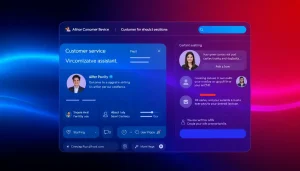Understanding the Implications of the VDAP Program for Alabama Nurses
Introduction to the VDAP Program
In the nursing profession, the challenges posed by substance use and mental health issues can be overwhelming. Recognizing this, several states, including Alabama, have established programs to support nurses facing these difficulties. One such initiative is the VDAP Program, or Voluntary Disciplinary Alternative Program. This program is designed to identify, intervene, treat, and rehabilitate nurses who may struggle with substance use or mental health issues, allowing them to retain their professional licenses while receiving necessary support.
What is the VDAP Program?
The VDAP Program serves as a confidential, voluntary alternative to traditional disciplinary actions within the nursing profession. It is specifically tailored for registered nurses and licensed practical nurses in Alabama who are experiencing challenges related to substance use disorders or mental health conditions. The core aim of this program is to offer an opportunity for recovery and rehabilitation rather than immediate punitive measures, prioritizing the health and welfare of the nurse while also addressing the safety of patients.
History and Purpose of the Program
The VDAP was created in response to the growing recognition that addiction and mental health issues are prevalent in the nursing field, often exacerbated by the high-stress environment of healthcare. Established to promote early identification and intervention, the program focuses on providing support and a pathway for recovery without the stigma of punitive actions.
Since its inception, the VDAP Program has been instrumental in promoting the recovery of many nurses, allowing them to continue their work while undergoing treatment. It operates under the premise that individuals, when provided with the right support and resources, can make meaningful changes and regain their status as competent, safe practitioners.
Who is Eligible for the VDAP Program?
Eligibility for the VDAP Program is typically contingent on several factors. First and foremost, the nurse must voluntarily admit to a substance use disorder or mental health condition. This self-identified need for help is critical, as participation in the program requirements cannot be mandated by employers or the Board of Nursing.
Additionally, certain criteria guide the selection of candidates for the program. Generally, those who have not engaged in any conduct that poses a direct threat to the public, such as impaired practice resulting in patient harm, may qualify. Furthermore, the program often assesses whether the nurse is willing to abide by treatment protocols and comply with the established monitoring requirements.
Benefits and Challenges of the VDAP Program
Advantages of Participating in the VDAP Program
The primary advantage of the VDAP Program is its non-punitive approach. Participants can seek help and achieve recovery while retaining their professional licenses, which helps alleviate the fear of job loss. The program typically offers a supportive environment that fosters healing, accountability, and professional development.
Moreover, nurses participating in the VDAP Program have access to various resources, including counseling, treatment programs, and support networks designed to assist them through recovery. The program outlines a structured path that includes regular monitoring and evaluations to ensure compliance and progress, ultimately increasing the chances of a successful recovery.
Common Concerns and Misconceptions
Despite its benefits, several misconceptions about the VDAP Program can deter nurses from participating. One common concern is the fear that entering the program may permanently damage their professional reputation or lead to permanent license revocation. However, it is essential to understand that the VDAP is designed to be a rehabilitative effort rather than a punitive measure.
Another misconception is the belief that participation in the program will be disclosed to employers. In reality, the program is confidential, and participants’ rights to privacy are strongly protected. This aspect of the VDAP Program is often emphasized to alleviate concerns about potential career repercussions.
Personal Experiences of Nurses in the VDAP Program
Personal testimonials from nurses who have gone through the VDAP Program reveal diverse experiences, highlighting both challenges and triumphs. Many participants recount a sense of relief upon entering the program, emphasizing the importance of being in an environment that allows for honest discussions regarding mental health and substance use issues.
Challenges faced during participation may include balancing work commitments with treatment schedules and navigating the emotional toll of recovery. However, the overarching sentiment among participants is one of gratitude for the opportunity to heal while continuing their careers. These narratives serve as powerful reminders of the program’s role in supporting nurses toward meaningful recovery, illustrating that with appropriate support, many can overcome significant obstacles.
Legal Considerations Regarding the VDAP Program
Understanding Agreements and Requirements
Upon entering the VDAP Program, participants must sign agreements detailing their commitment to the terms and conditions outlined by the program. These agreements typically include adherence to treatment recommendations, regular reporting of progress, and maintaining open communication with program coordinators.
Nurses must also understand that failure to comply with these agreements can lead to consequences, including expulsion from the program. Understanding the legal aspects is crucial to navigating the VDAP successfully, as it maintains the balance between accountability and the support necessary for recovery.
Consequences of Non-Participation or Violation
The implications of not participating in the VDAP Program, once eligibility has been determined, can be severe. If a nurse chooses not to enter the program but is later found to have impaired practice due to substance use or mental health issues, they may face direct disciplinary actions from the Alabama Board of Nursing.
Moreover, any violations of the program’s requirements can result in missed opportunities for rehabilitation and increased scrutiny from licensing bodies. Nurses should take seriously their responsibilities within the program and remain diligent in complying with all stipulated conditions to avoid further repercussions.
Legal Protections for Participants
One of the critical elements of the VDAP Program is the legal protections afforded to participants. Confidentiality provisions ensure that participation and any information shared during treatment remain sheltered from public disclosure. This legal framework is designed to encourage nurses to seek help without fear of professional repercussions.
Furthermore, legal protections allow participants the chance to reclaim their nursing licenses after successful completion of treatment, which reinforces the program’s rehabilitative ethos. Understanding these protections helps nurses feel more secure in making the challenging decision to enter the program and prioritize their health and well-being.
Strategies for Navigating the VDAP Program Effectively
Best Practices for Success in the VDAP Program
Successfully navigating the VDAP Program requires a strategic approach. First, participants should take full advantage of the resources provided, including counseling and peer support groups. Engaging with fellow nurses undergoing similar experiences can create a vital support network that fosters both accountability and emotional resilience.
Regular communication with program coordinators is also crucial. Keeping them informed about any challenges faced during treatment or monitoring can facilitate necessary adjustments and additional support. Additionally, setting realistic goals for recovery can aid in maintaining motivation and a sense of progress throughout the program.
Support Resources for Nurses
In addition to the structured resources provided by the VDAP Program, nurses should also explore external support networks that can complement their recovery journey. Local and national organizations dedicated to nursing wellness can provide additional resources and connections to other nurses who have successfully navigated similar paths.
Furthermore, wellness activities such as yoga, meditation, and exercise can help alleviate stress and promote mental well-being. Integrating these elements into a recovery plan can yield holistic benefits that support both emotional and physical health during the recovery process.
Building a Support Network Within the Program
Establishing a robust support network within the VDAP Program is essential for long-term recovery success. Nurses are encouraged to find a recovery partner or accountability buddy, someone they can trust to provide support and encouragement throughout the program.
Moreover, participating in group meetings or peer support sessions can foster relationships with other nurses who are committed to their recovery journeys. These connections can provide invaluable emotional support, helping individuals feel less isolated and more integrated within the nursing community as they navigate their challenges.
The Future of the VDAP Program
Recent Changes and Reforms in the Program
As healthcare evolves, so too does the VDAP Program. Recent reforms have introduced new therapeutic interventions, enhanced educational components, and more comprehensive follow-up procedures for participants after completing the program. These changes aim to strengthen the program’s effectiveness and improve recovery outcomes.
Feedback from former participants and stakeholders in the healthcare community plays a critical role in shaping these reforms. Continuous assessment and adaptation ensure that the VDAP remains relevant to the needs of nurses in an ever-changing healthcare landscape.
The Role of Advocacy Groups
Advocacy groups play a vital role in promoting and improving the VDAP Program by raising awareness about the challenges nurses face regarding substance use and mental health issues. These organizations are essential in pushing for policy changes that enhance the resources available to nurses in recovery.
Furthermore, advocacy efforts aimed at eliminating stigma associated with mental health and addiction in the nursing profession contribute to creating a more supportive environment for nurses seeking help. As these groups continue their efforts, they can foster greater understanding and collaboration to benefit future participants in the VDAP Program.
How Nurses Can Influence Future Developments
Nurses themselves have the power to shape the future of the VDAP Program by actively participating in discussions about its direction and development. Sharing experiences and insights about the program contributes to a collective understanding of its impacts and areas for improvement.
Additionally, nurses can engage with advocacy groups and collaborate on initiatives that focus on enhancing the support available for nurses in recovery. By raising their voices, they can help ensure that the VDAP Program evolves to meet the emerging needs of the nursing workforce.














Post Comment